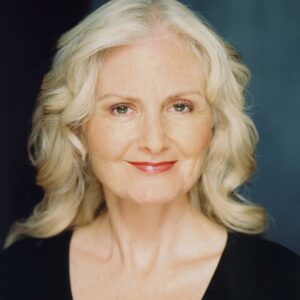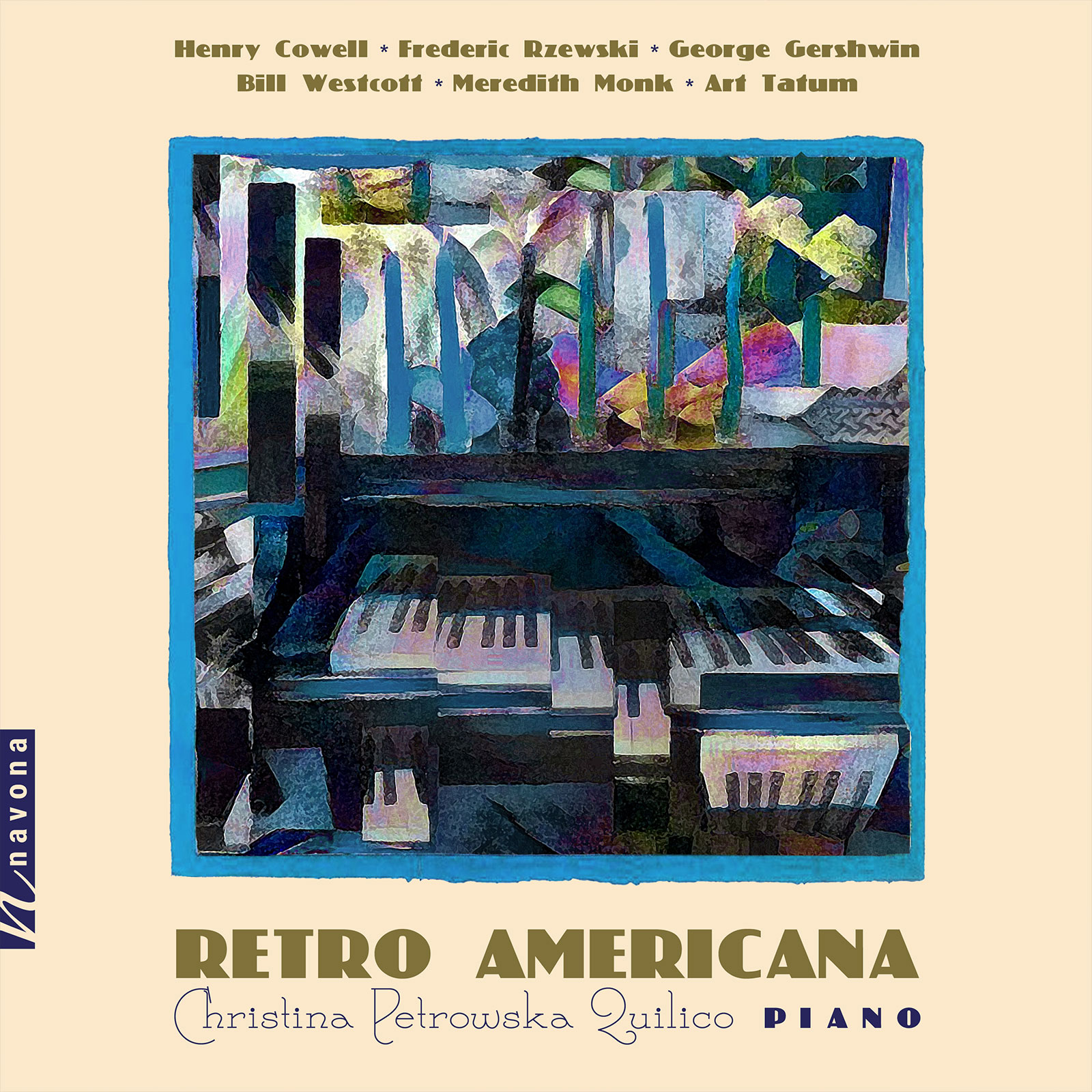Retro Americana
Henry Cowell composer
Frederic Rzewski composer
George Gershwin composer
Bill Westcott composer
Meredith Monk composer
Art Tatum composer
Christina Petrowska Quilico piano
Highly-acclaimed, highly-prolific pianist Christina Petrowska Quilico embarks on a magnificent journey through time by exploring an entire century’s worth of North American piano music. RETRO AMERICANA splendidly showcases the whole gamut of a long-neglected genre seldom heard in such magnificence.
Quilico, whose career output includes a mind-boggling fifty-plus records, has assembled the eclectic cornucopia of RETRO AMERICANA with her usual proficient, stylistic command. Atonal pioneer Henry Cowell shakes hands with a rather lighthearted George Gershwin, while their living colleagues Meredith Monk and Bill Westcott are just as diligently heroized as the late legends Frederic Rzewski and Art Tatum. Their respective times and voices are impeccably tied together by Quilico’s trademark: her rivetingly acuminous interpretation.
Listen
Track Listing & Credits
| # | Title | Composer | Performer | |
|---|---|---|---|---|
| 01 | Six Ings: Floating | Henry Cowell | Christina Petrowska Quilico, piano | 1:31 |
| 02 | Six Ings: Frisking | Henry Cowell | Christina Petrowska Quilico, piano | 1:49 |
| 03 | Six Ings: Fleeting | Henry Cowell | Christina Petrowska Quilico, piano | 1:40 |
| 04 | Six Ings: Scooting | Henry Cowell | Christina Petrowska Quilico, piano | 1:16 |
| 05 | Six Ings: Wafting | Henry Cowell | Christina Petrowska Quilico, piano | 1:42 |
| 06 | Six Ings: Seething | Henry Cowell | Christina Petrowska Quilico, piano | 0:40 |
| 07 | Winnsboro Cotton Mill Blues | Frederic Rzewski | Christina Petrowska Quilico, piano | 9:02 |
| 08 | Suite: The Man I Love | George Gershwin | Christina Petrowska Quilico, piano | 1:58 |
| 09 | Suite: Nobody but You | George Gershwin | Christina Petrowska Quilico, piano | 0:55 |
| 10 | Suite: Do It Again | George Gershwin | Christina Petrowska Quilico, piano | 1:21 |
| 11 | Suite: Oh, Lady Be Good! | George Gershwin | Christina Petrowska Quilico, piano | 1:06 |
| 12 | Suite: 'S Wonderful | George Gershwin | Christina Petrowska Quilico, piano | 0:57 |
| 13 | Suite: That Certain Feeling | George Gershwin | Christina Petrowska Quilico, piano | 1:20 |
| 14 | Suite: I Got Rhythm | George Gershwin | Christina Petrowska Quilico, piano | 1:22 |
| 15 | Suite: Somebody Loves Me | George Gershwin | Christina Petrowska Quilico, piano | 1:34 |
| 16 | Suite: Prelude | Bill Westcott | Christina Petrowska Quilico, piano | 2:08 |
| 17 | Suite: Wannabe a Rag | Bill Westcott | Christina Petrowska Quilico, piano | 3:37 |
| 18 | Suite: Ballade | Bill Westcott | Christina Petrowska Quilico, piano | 5:10 |
| 19 | Suite: All Boogies | Bill Westcott | Christina Petrowska Quilico, piano | 5:09 |
| 20 | Paris | Meredith Monk | Christina Petrowska Quilico, piano | 3:07 |
| 21 | Windows In 7 | Meredith Monk | Christina Petrowska Quilico, piano | 2:01 |
| 22 | St. Petersburg Waltz | Meredith Monk | Christina Petrowska Quilico, piano | 6:28 |
| 23 | Railroad (Travel Song) | Meredith Monk | Christina Petrowska Quilico, piano | 1:41 |
| 24 | I'll Never Be The Same | Art Tatum | Christina Petrowska Quilico, piano | 1:39 |
| 25 | Don't Get Around Much Anymore | Art Tatum | Christina Petrowska Quilico, piano | 1:18 |
Tracks 1-7, 24-25
Concert recorded live at the Glenn Gould Studio in Toronto ON, Canada
Recording Session Producers David Jaeger, David Quinney
Tracks 8-15
Recorded at Humbercrest United Church in Toronto ON, Canada
Recording Session Producer J. Hannaby
Recording Session Engineer Wiggert van Hardeveld
Tracks 16-23
Recorded at York University, Tribute Communities Recital Hall in Toronto ON, Canada
Recording Session Producer David Jaeger
Recording Session Engineer Dennis Patterson
All recordings mastered by David Jaeger
Publicist, program notes editor Linda Litwack
General Manager of Audio & Sessions Jan Košulič
Recording Sessions Director Levi Brown
Audio Director, Addtl. Mastering Lucas Paquette
Executive Producer Bob Lord
Executive A&R Sam Renshaw
A&R Director Brandon MacNeil
VP, Design & Marketing Brett Picknell
Art Director Ryan Harrison
Design Edward A. Fleming
Publicity Patrick Niland, Sara Warner
Artist Information

Christina Petrowska Quilico
“An extraordinary talent with phenomenal ability” and “dazzling virtuosity” (The New York Times), Christina Petrowska Quilico has won fans internationally for her 60 albums, solo recitals and performances of 53 piano concertos. Reviews describe her as a “piano wizard” (Take Effect Reviews), “the towering Canadian piano virtuoso” (The WholeNote), “commanding pianism” (American Record Guide), “intelligent program” (Gramophone), and her “ability to leave a permanent impression on the listener’s soul” (Sonograma Magazine). One of “Canada’s 25 best classical pianists” and in the “Concert Hall of Fame” (Canadian Broadcasting Corporation), she was appointed to the Order of Canada, Order of Ontario and the Royal Society of Canada.

